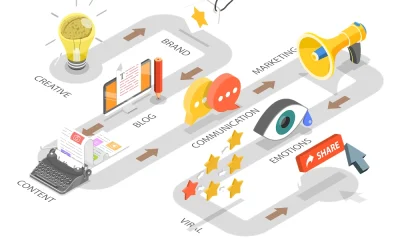Marketing
7 Easy Ways to Promote Website Link Building
Link building is how your website acquires links from other sites. As a process, it significantly improves your search engine ranking and directs more traffic to your site. It can also help expand your audience reach and allows various users to consume your content. And so, to thrive online, your website’s online visibility matters a great deal. For that reason, the importance of link building can never be underscored. Understanding link building significantly positions you ahead of your competition as you command a stellar online presence.
In pursuit of search engine optimization or simply SEO, link-building campaigns have taken both natural and unnatural paths. In natural link building, sites earn a slow but steady inflow of links into their websites. Unnatural link building, on the other hand, seeks to accelerate the process. It could be penalized or treated as spam by search engines. High-quality links improve your search engine ranking but also help build a solid online brand.
Here are seven website link-building strategies that will help boost your link-building efforts:
1. Blogging
By creating your own blog, you create a platform to post fresh content online regularly. In the process, you naturally build links internally. In addition, you can control which niches you wish to publish on your blog.
Natural and internal links are a good combination for any search engine. As you blog, you can structure your content to link out accordingly. Creating a blog is surprisingly easy, provided you identify the right web hosting, partner. Knowing which type of content appeals to your target audience would also be ideal for helping your blog grow and build links.
Furthermore, knowing which type of content appeals to your target audience would also be ideal for helping your blog grow and build links. As well as consistently putting up new posts with keyword anchor text greatly builds on internal links. You should also consider linking to websites that interest you while at it.
2. Family and Friends
When on a link-building campaign, asking the people you know for a link is the most natural step. Think of your relatives, colleagues, employees, business partners, acquaintances, and friends. This could be the easiest strategy so far if you are the social kind. Some of them probably have blogs or websites. Don’t be shy to ask them for a link to your website. You can also target those on social media platforms such as Facebook, Twitter, and others.
Connecting with others may also help you improve your SEO results. If you need a further boost, you may also utilize services like SEO strategy for SaaS brands and other sites to gain traffic and, as a result, build more links.
3. Internal Links
Capitalize on your website’s pages and posts to anchor internal links. You can add links to your content to keep users’ attention longer. By continuously providing them with useful and relevant information, they may be more likely to patronize your site. However, it’s recommended to appropriately use anchor text to connect your content and boost your SEO. If used correctly, internal links can be optimized to better promote your most important pages.
4. Press Coverage
Associating your business with the press is another excellent strategy for building links to your website. Media exposure and a positive public image can help boost your site’s visibility and performance. And so, it can be advantageous to build relationships with news reporters and always avail yourself of comments on industry-related stories. Being mentioned by reputable news sources passes you off as trustworthy, and many people will want to associate with you. It’s also a great way of promoting without spending a lot of resources. Overall, this means linking back to your website!
5. Link Directories
Getting listed by link directories is one of the often mentioned link building strategies. There are different directories though, that you should be familiar with. General web directories are inclusive instead of niche-specific ones that demand you meet certain criteria. These directories could be free or paid. You should, however, first consider the value they bring. Are they worth it?
6. Link Pages
Although challenging, asking for a link on the link pages could help with link building. A link page is a web page on someone’s website that contains many links, usually notable ones in different niches. Identifying one related to your business is the first step towards obtaining it. You must then build relationships with the webpage owner to access the link.
When using link pages, ensure the ones you use are related to your content. Otherwise, your viewers may lose interest. Also, they may not interact with the links if they don’t find them relevant.
7. Join Local Organizations
There is a local chamber of commerce in almost every city. Joining one not only puts out your brand but also allows you to network with other local businesses, especially related ones. It is a relatively easy way to generate leads for people with excellent networking skills.
SEO today is almost mandatory to ensure that your online business survives and thrives. Link building plays a significant role towards this. With the strategies above, you can easily promote your website link-building efforts and drive that much-needed web traffic home.






